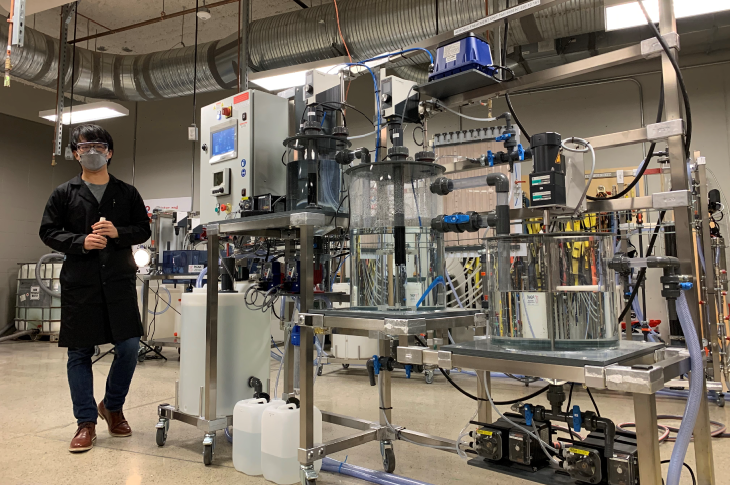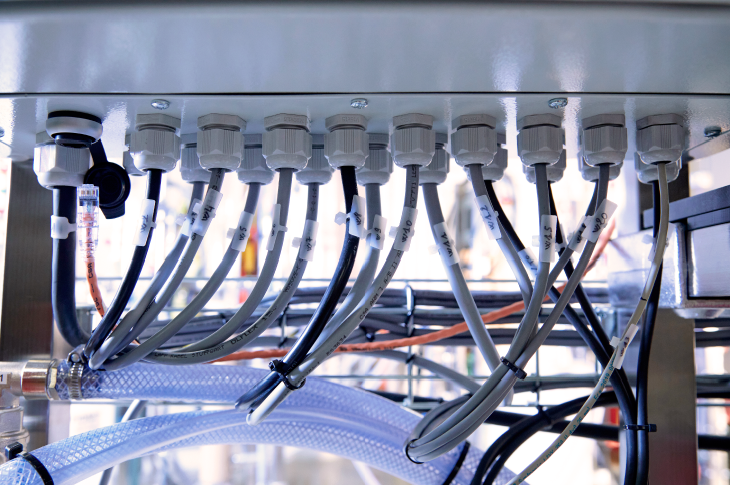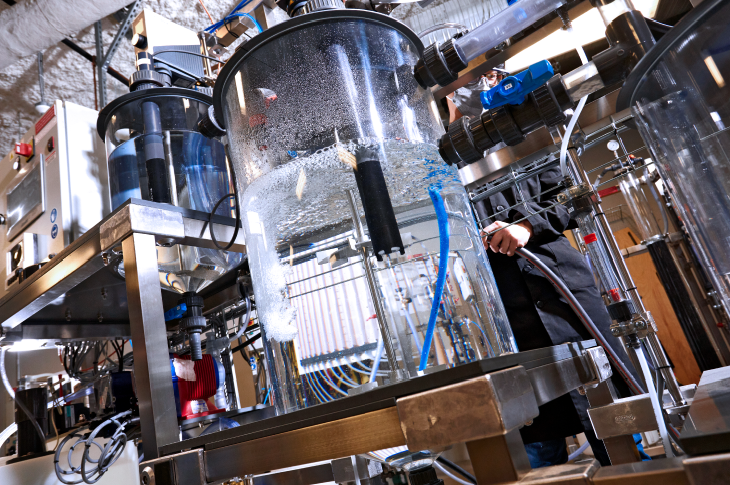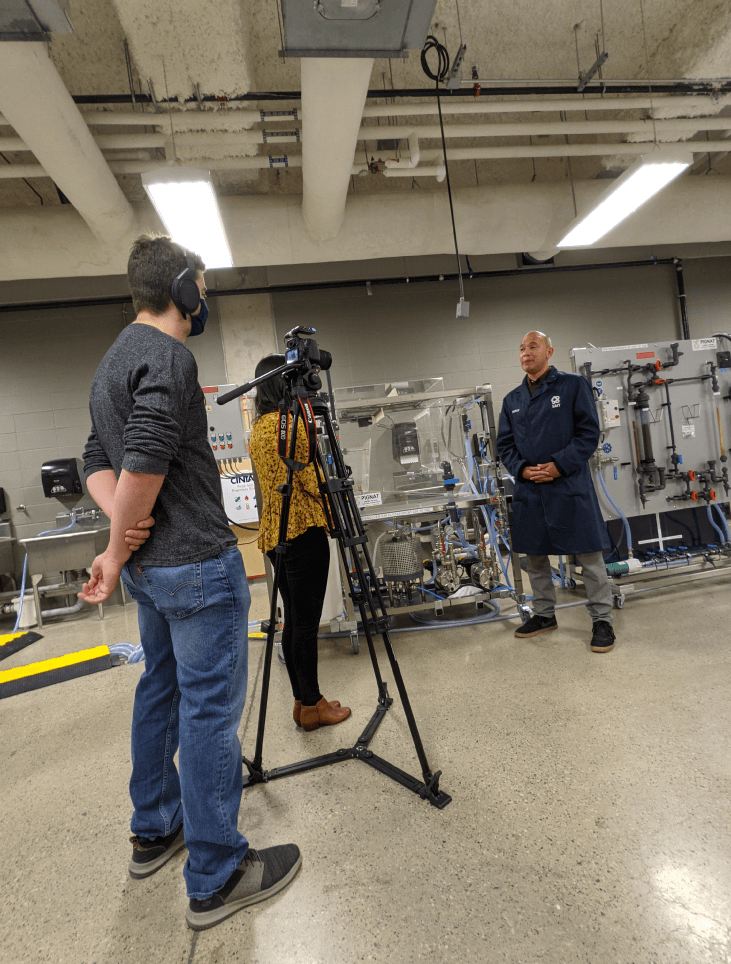New $1-million lab helps future workforce ride the wave of water sustainability

Students interested in sustainable water resource management will have the chance to hone their craft in a new $1-million Water and Wastewater Pilot Scale Treatment Lab on SAIT’s main campus.
The lab contains the same state-of-the-art equipment found in an operational water treatment facility — scaled down for learning purposes.
“Each unit simulates a different process used in domestic or industrial water treatment,” says Pablo Pina, Academic Chair of Sustainability, MacPhail School of Energy (MacPhail).
Domestic processes treat both the water we drink and the wastewater we produce in a municipality, whereas industrial processes prepare water for use in petrochemical plants, pulp and paper or oil and gas extraction. Exposure to both in the lab will give students a unique advantage come graduation.
“Water is an essential component to our economy and we need people who know how to manage it,” says Pina.
Three years in the making, the lab was made possible thanks to an ongoing partnership with Spartan Controls and an anonymous donation to MacPhail in support of environmental sustainability.
Additionally, SAIT’s Applied Research and Innovation Services (ARIS) Water Research and Innovation area in the Centre for Energy Research in Clean Unconventional Technology Solutions — in collaboration with MacPhail — used funding from the Canada Foundation for Innovation and Applied Research Fund to develop the lab’s unique industrial water and wastewater treatment train, empowering the workforce of tomorrow.

Training that trickles down to industry
A post-secondary training facility unlike any other in southern Alberta, the new lab will empower students with hands-on, industry-ready training in the Water and Wastewater Treatment Operations, Integrated Water Management and Environmental Technology programs. Training on the industrial water treatment train will further benefit students enrolled in Bachelor of Applied Technology Petroleum Engineering, Chemical Engineering Technology and Chemical Laboratory Technology.
Students will start working in the lab during the Winter 2022 term under the guidance of trained instructors, gaining firsthand experience with water treatment equipment operation, process timing and troubleshooting. They’ll also learn what to look for during the treatment process.
“Students will have the opportunity to harness their skills and learning in an applied setting, working with the same equipment or processes they’ll use in the industry,” says Pina.
“It’s an exciting new way to deliver training.”
The equipment — arguably the best in the world — was sourced from the other side of it, hopping the pond all the way from a vendor in France.

Clean water, cleaner energy
Developing talent in water has sustainable implications across many industries, including energy.
“When people think about energy, they tend to think oil and gas, but it’s way more than that,” says Pina.
“Building an understanding of water use in energy will help drive sustainable innovation and new technologies in water resource management.”

MacPhail says the new lab will help foster innovation in sustainable water resource management.
Pina notes that future-focused investments like the water treatment lab will help SAIT in its mission to build a better world.
“This lab is a great way for SAIT to demonstrate its commitment towards environmental sustainability in the area of water resource management,” says Pina.
Dive into a career in water resource management
Thinking of jumping into the deep end? Learn more about hands-on programs such as Environmental Technology and Integrated Water Management.
From program offerings to industry partnerships, learn how the MacPhail School of Energy is empowering future-ready energy.
Did you know?
Canadian Colleges for a Resilient Recovery (C2R2) is a coalition of 15 Colleges and Institutes Canada (CICan) members — including SAIT — poised to educate a post-pandemic workforce to support a new climate-focused economic recovery. C2R2 will champion projects across Canada to support a recovery that delivers good jobs, positively impact the environment and address socio-economic inequality.
Skills for the Future
We prepare students for successful careers and lives.
SAIT'S
2020-2025
Strategic plan

Oki, Âba wathtech, Danit'ada, Tawnshi, Hello.
SAIT is located on the traditional territories of the Niitsitapi (Blackfoot) and the people of Treaty 7 which includes the Siksika, the Piikani, the Kainai, the Tsuut’ina and the Îyârhe Nakoda of Bearspaw, Chiniki and Goodstoney.
We are situated in an area the Blackfoot tribes traditionally called Moh’kinsstis, where the Bow River meets the Elbow River. We now call it the city of Calgary, which is also home to the Métis Nation of Alberta.